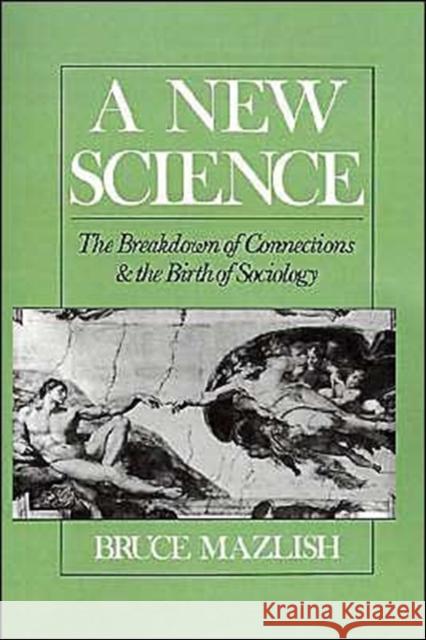A New Science: The Breakdown of Connections and the Birth of Sociology » książka
A New Science: The Breakdown of Connections and the Birth of Sociology
ISBN-13: 9780195058468 / Angielski / Twarda / 1989 / 352 str.
A New Science: The Breakdown of Connections and the Birth of Sociology
ISBN-13: 9780195058468 / Angielski / Twarda / 1989 / 352 str.
(netto: 544,02 VAT: 5%)
Najniższa cena z 30 dni: 558,16
ok. 30 dni roboczych
Bez gwarancji dostawy przed świętami
Darmowa dostawa!
In this book Mazlish examines the historical origins of sociology, looking closely at how what he terms the "cash nexus"--the omnipresent substitution of money for personal relations--was perceived as changing the nature of human relations in the 19th century and led to the development of sociology as a means of dealing with this condition. Mazlish also considers the breakdown of connections in modern society: how the orderly 18th century world in which God, humanity, and nature were closely connected to one another came to be replaced with one of felt disconnection, and how individualism then came to be seen as replacing a sense of community in modern society. He investigates the work of a number of 19th-century English writers who were concerned with this breakdown of connections, including Adam Smith, William Wordsworth, Edmund Burke, Thomas Carlyle, and particularly novelists such as Benjamin Disraeli, Elizabeth Gaskell, and George Eliot. He also explores the influence of Darwin, presents Engels and Marx as precursors of the science of sociology and discusses at length the major founding figures of modern classical sociology: Ferdinand Tonnies, George Simmel, Emile Durkheim, and Max Weber.











